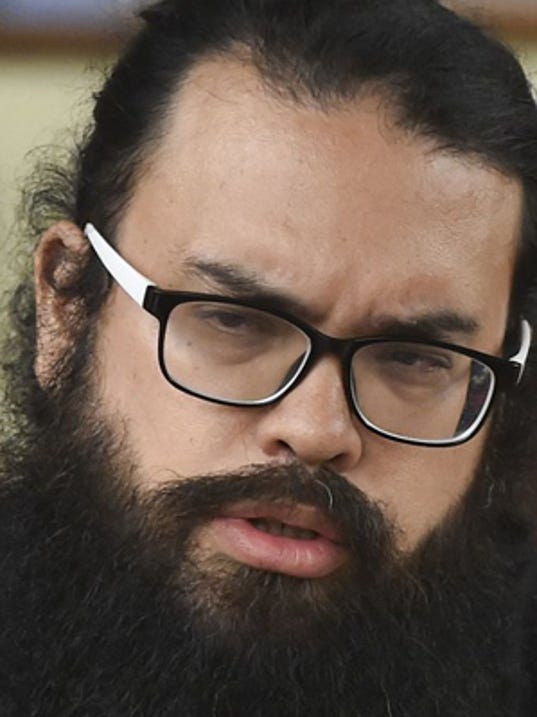Michael Lujan Bevacqua
for
Michael Lujan Bevacqua is an author, artist, activist
and assistant professor of Chamorro Studies at the University of Guam.
 I am fortunate to be a co-chair for the community group Independent Guåhan, whose mission is to educate the island about the importance of Guam’s decolonization and the possibilities should Guam become an independent country. Our group is part of the Independence for Guam Task Force, which is in turn part of the Commission on Decolonization. My co-chair is Victoria Leon Guerrero.
I am fortunate to be a co-chair for the community group Independent Guåhan, whose mission is to educate the island about the importance of Guam’s decolonization and the possibilities should Guam become an independent country. Our group is part of the Independence for Guam Task Force, which is in turn part of the Commission on Decolonization. My co-chair is Victoria Leon Guerrero.
It is a common, albeit unfounded criticism of our outreach that we are simply offering flowery, philosophical ideas but no real information or concrete facts. This is hardly the case. Each month, our group organizes a number of different types of educational meetings, sometimes for groups as large as 40, others aimed at an audience of four. For each event, members and volunteers for Independent Guåhan conduct research and prepare educational materials.
At the end of each of our monthly general assemblies, we break into small groups and collect feedback and questions that we later incorporate into what we research and present in the future.
READ MORE:
Part of the reason our efforts are sometimes criticized is simply the nature of the task. Speaking about independence or any other political status change is largely notional, because it is about what lies ahead, following the holding of a decolonization plebiscite and subsequent negotiations with the U.S. government. Providing concrete projections or plans is possible, but it’s akin to attempting to describe in detail what your life will be like 10, 20 or 30 years from now. You can have a sense of what might happen, you can hope your life will unfold according to plan, but it relies on a great many assumptions.
This doesn’t mean education around decolonization is useless or empty. On the contrary, what is important at this stage is looking at potential models Guam can emulate, or at least learn from, in terms of conceiving its own development. Missing the decolonization boat that shook the world in the first few decades following World War II was unfortunate in one sense, but in another it gives us the chance to see the paths others have taken.
Last month we held a general assembly in the village of Malesso’, with more than 50 people in attendance. The focus was on looking at government models around the world that could help an independent Guåhan increase accountability to its constituents, while decreasing possibilities for corruption and malfeasance. Ray Lujan, an intern for the group, discussed the Nordic model used with great effectiveness by Scandinavian countries, the “Pura Vida” approach that has led to great prosperity in Costa Rica, as well as reforms enacted by Singapore and New Zealand.
There are elements of these models that can be implemented now, but we must always keep an eye on the horizon and not forget the ultimate goal must be to end this era of colonization and bring the island to an era of true self-government.
If you are interested in attending the next general assembly, it will take place from 6 to 7:30 p.m. June 29 at the Toto Community Center. The focus will be on the impacts of U.S. military dumping on Guam and creative ways of dealing with crime and vandalism in Guam’s villages.